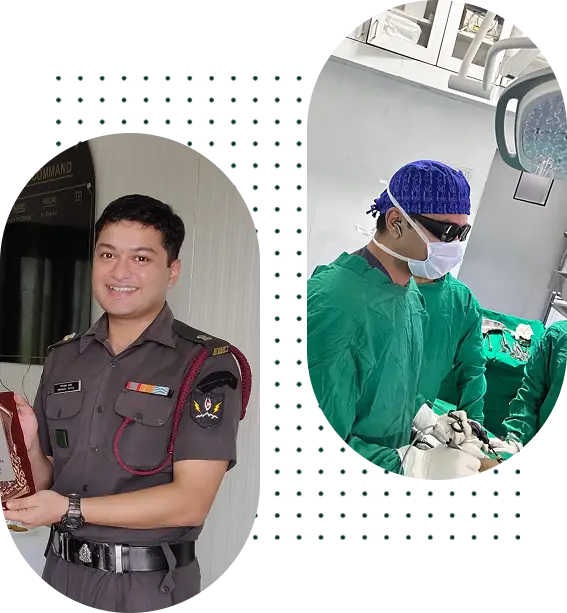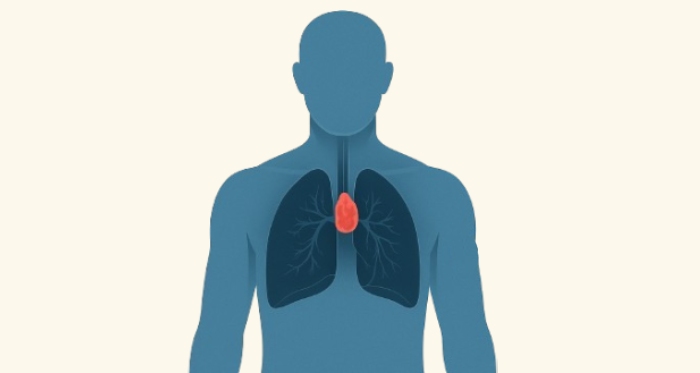Thymus & Mediastinal Tumours Treatment in Kolkata
These could be symptoms of a mediastinal tumour, a growth in the central part of your chest between the lungs. While not all tumours are cancerous, early detection can help manage potentially serious conditions.
Dr. (Maj) Ranajoy Dutta, an experienced thymus & mediastinal tumours doctor in Kolkata, brings surgical precision whether it’s a thymoma, germ cell tumour, or a more complicated mediastinal mass.
What Are Thymus and Mediastinal Tumours?
One of the most common types is thymoma, a tumour that begins in the thymus gland and is often slow-growing but potentially invasive.

Thymus and Mediastinal Tumours Types

Thymomas
Tumors originating in the thymus, which can be benign or malignant. They are classified into types A, AB, and B based on their cell composition.

Thymic Carcinoma
A rare and aggressive cancer of the thymus that is more malignant than thymomas.

Mediastinal Germ Cell Tumors
Tumors arising from germ cells in the mediastinum, including teratomas, seminomas, and nonseminomatous germ cell tumors.

Lymphomas
Cancers of the lymphatic system, often found in the anterior mediastinum, including Hodgkin’s and non-Hodgkin’s lymphoma.

Neurogenic Tumors
Tumors originating from nerve tissue in the mediastinum, including schwannomas, neurofibromas, and malignant nerve sheath tumors.

Mesenchymal Tumors
Tumors originating from connective tissues, such as fibromas, lipomas, and sarcomas, including malignant forms.
Thymus and Mediastinal Tumour Causes
Autoimmune conditions (e.g., myasthenia gravis linked to thymoma)

Call for Appointments
Begin your treatment journey with expert care. Schedule your appointment with Kolkata’s esteemed cancer specialist Dr. (Maj) Ranajoy Dutta today.

Thymus and Mediastinal Tumour Symptoms
These symptoms can feel like heart or lung issues. Therefore, you must get it evaluated immediately by Dr. (Maj) Ranajoy Dutta, a certified thymus & mediastinal tumours doctor in Kolkata.

Thymus and Mediastinal Tumour Diagnosis

Chest X-ray or CT scan

MRI

Needle or surgical biopsy

PET scan
Treatments
Dr. (Maj) Ranajoy Dutta primarily recommends surgery for thymus and mediastinal tumours, especially if the mass is limited and resectable.
For lymphomas or malignant germ cell tumours, chemotherapy and radiation may be used alone or alongside surgery. In more advanced cases like thymic carcinoma, targeted therapy or immunotherapy can help manage progression.
If you’ve had abnormal chest scans or a family history of chest-related tumours, book a consultation with Dr. (Maj) Ranajoy Dutta and receive timely intervention and expert care.
Fill The Form
Contact Form

Make Appointment &
Take Care Of Your
Healthy Life

